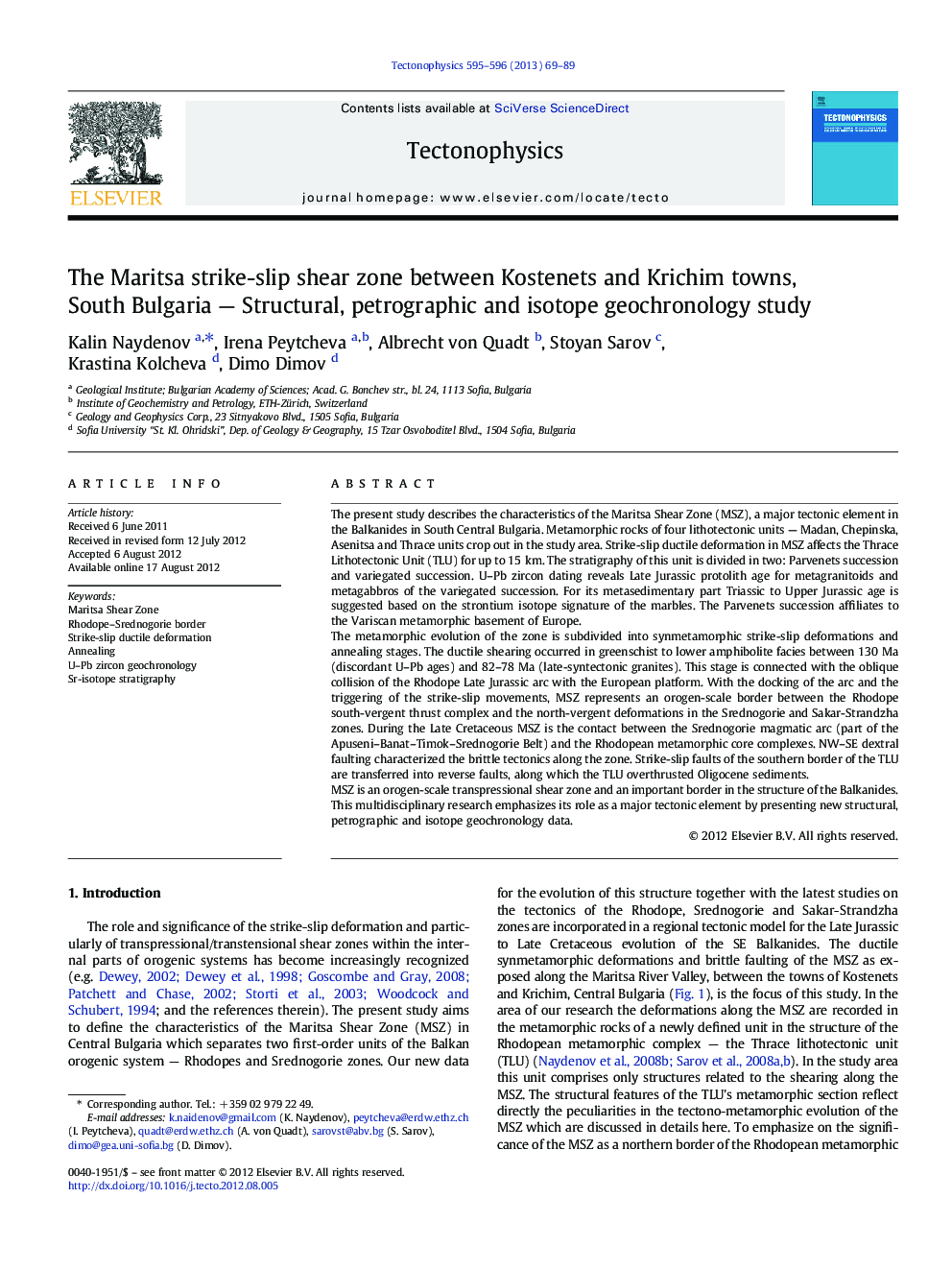| کد مقاله | کد نشریه | سال انتشار | مقاله انگلیسی | نسخه تمام متن |
|---|---|---|---|---|
| 4692297 | 1636790 | 2013 | 21 صفحه PDF | دانلود رایگان |

The present study describes the characteristics of the Maritsa Shear Zone (MSZ), a major tectonic element in the Balkanides in South Central Bulgaria. Metamorphic rocks of four lithotectonic units — Madan, Chepinska, Asenitsa and Thrace units crop out in the study area. Strike-slip ductile deformation in MSZ affects the Thrace Lithotectonic Unit (TLU) for up to 15 km. The stratigraphy of this unit is divided in two: Parvenets succession and variegated succession. U–Pb zircon dating reveals Late Jurassic protolith age for metagranitoids and metagabbros of the variegated succession. For its metasedimentary part Triassic to Upper Jurassic age is suggested based on the strontium isotope signature of the marbles. The Parvenets succession affiliates to the Variscan metamorphic basement of Europe.The metamorphic evolution of the zone is subdivided into synmetamorphic strike-slip deformations and annealing stages. The ductile shearing occurred in greenschist to lower amphibolite facies between 130 Ma (discordant U–Pb ages) and 82–78 Ma (late-syntectonic granites). This stage is connected with the oblique collision of the Rhodope Late Jurassic arc with the European platform. With the docking of the arc and the triggering of the strike-slip movements, MSZ represents an orogen-scale border between the Rhodope south-vergent thrust complex and the north-vergent deformations in the Srednogorie and Sakar-Strandzha zones. During the Late Cretaceous MSZ is the contact between the Srednogorie magmatic arc (part of the Apuseni–Banat–Timok–Srednogorie Belt) and the Rhodopean metamorphic core complexes. NW–SE dextral faulting characterized the brittle tectonics along the zone. Strike-slip faults of the southern border of the TLU are transferred into reverse faults, along which the TLU overthrusted Oligocene sediments.MSZ is an orogen-scale transpressional shear zone and an important border in the structure of the Balkanides. This multidisciplinary research emphasizes its role as a major tectonic element by presenting new structural, petrographic and isotope geochronology data.
► Geological mapping and detailed structural study of the features of regional strike-slip shear zone;
► Microstructural analysis and petrography study of the synmetamorphic evolution;
► U–Pb geochronology of metagranites to metagabbros to obtain the protolith ages and time of the metamorphic overprint;
► Strontium isotope signature analysis of the carbonate rocks (marbles)
Journal: Tectonophysics - Volumes 595–596, 4 June 2013, Pages 69–89